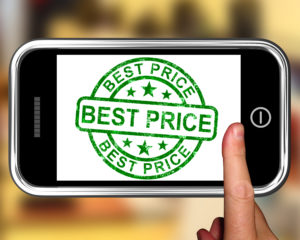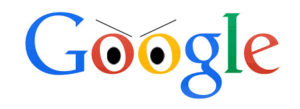This is a great podcast to get your feet wet with indie publishing. There is a transcript if podcasts are not your thing.
5 Important Things That Authors Need To Know About Self-Publishing With Mark Dawson
 If you’re just getting started in self-publishing, there are some things that you need to know upfront in order to save yourself time, money and heartache along the way.
If you’re just getting started in self-publishing, there are some things that you need to know upfront in order to save yourself time, money and heartache along the way.
In this interview, I discuss the basics with Mark Dawson from Self-Publishing Formula.
In the intro, I discuss the first album produced entirely by AI as reported by Digital Trends. The article goes into how the artist, Taryn Southern, uses AI as a creative tool and also starts to question whether AIs can be trained with copyrighted material. The beginning of a new form of copyright discussion, for sure.
I talk about why it’s so important to capture ideas in the moment, because time moves on and things change, based on the map shop around the corner from me closing recently. Walking past that shop almost every day inspired Map of Shadows, so it’s sad to see it go. [You can see a picture of it here Instagram.com/jfpennauthor]
Read the full post on The Creative Penn!

 This is a guest post by Jessica Ruscello, a copywriter at
This is a guest post by Jessica Ruscello, a copywriter at  Julie here! Today, I have Falguni Kothari as my guest on the blog. Falguni is a successful “hybrid author,” with both traditional and self-publishing experience. Her new book, MY LAST LOVE STORY (Harlequin/Graydon House), comes out tomorrow, January 23, 2018. This is Part One of a two part post, so be sure to come back tomorrow for Part Two. Take it away, Falguni!
Julie here! Today, I have Falguni Kothari as my guest on the blog. Falguni is a successful “hybrid author,” with both traditional and self-publishing experience. Her new book, MY LAST LOVE STORY (Harlequin/Graydon House), comes out tomorrow, January 23, 2018. This is Part One of a two part post, so be sure to come back tomorrow for Part Two. Take it away, Falguni! Earlier this year I came across an article by Kim Liao in which she explained
Earlier this year I came across an article by Kim Liao in which she explained 
 by Tabitha Lord
by Tabitha Lord We all make mistakes. It’s how people learn. But some new writer mistakes can end a writing career before it starts. They play into the hands of the predators who make money off the delusions of newbie writers.
We all make mistakes. It’s how people learn. But some new writer mistakes can end a writing career before it starts. They play into the hands of the predators who make money off the delusions of newbie writers. As part of our new #AskALLi weekly podcast we’re releasing popular
As part of our new #AskALLi weekly podcast we’re releasing popular  Today I’m talking with Australian author John Birmingham about his journey from the dizzying heights of the traditional publishing scene, to deciding to go indie and hybrid and his insights into how the publishing industry has changed. It’s an honest and really fascinating interview.
Today I’m talking with Australian author John Birmingham about his journey from the dizzying heights of the traditional publishing scene, to deciding to go indie and hybrid and his insights into how the publishing industry has changed. It’s an honest and really fascinating interview. Warning: Hacks for Hacks tips may have harmful side effects on your writing career, and should not be used by minors, adults, writers, poets, scribes, scriveners, journalists, or anybody.
Warning: Hacks for Hacks tips may have harmful side effects on your writing career, and should not be used by minors, adults, writers, poets, scribes, scriveners, journalists, or anybody. I remember how stressed I was whenever I had a book launch for Penguin Random House.
I remember how stressed I was whenever I had a book launch for Penguin Random House. Not too long ago, self-published authors were collectively admonished about the need to invest in their work. Hiring quality editors, proofreaders, cover designers, and formatters before attempting to sell a book was the constant mantra of industry experts. While some hapless writers continued to slap their Word docs up on Amazon and hope to snare a few readers, authors who took their careers seriously made the proper investments.
Not too long ago, self-published authors were collectively admonished about the need to invest in their work. Hiring quality editors, proofreaders, cover designers, and formatters before attempting to sell a book was the constant mantra of industry experts. While some hapless writers continued to slap their Word docs up on Amazon and hope to snare a few readers, authors who took their careers seriously made the proper investments. Through out my career, I have had people ask me how to trick Google so they could be on top of the search engine. First of all, thank you for thinking I am that smart. But because I am that smart, I tell the truth. It isn’t worth it and it can’t be done. Why would you want to? I can see wanting to make sure your site is optimized the best it can be and I am so glad to help you with that. But as my wise old granny used to say “If it is too good to be true, follow the money.” What you want is your right audience to be able to find you. Including your searches.
Through out my career, I have had people ask me how to trick Google so they could be on top of the search engine. First of all, thank you for thinking I am that smart. But because I am that smart, I tell the truth. It isn’t worth it and it can’t be done. Why would you want to? I can see wanting to make sure your site is optimized the best it can be and I am so glad to help you with that. But as my wise old granny used to say “If it is too good to be true, follow the money.” What you want is your right audience to be able to find you. Including your searches. Kindle Scout is Amazon’s innovative program where readers “scout” for new books and vote for ones they believe should be published. Back in April, I covered the basics of
Kindle Scout is Amazon’s innovative program where readers “scout” for new books and vote for ones they believe should be published. Back in April, I covered the basics of  by Sophie Littlefield, aka Sofia Grant
by Sophie Littlefield, aka Sofia Grant